A photo tutorial on how to make homemade sauerkraut.
Raise your hand if you’re bonkers over briny, tangy foods like sauerkraut, mustard, or horseradish? I’m crazy about condiments, especially of the homemade varietal. They add so much spunk and flavor to your sandwiches, meat marinades, salad dressings, etc, etc. Sauerkraut has been one of my favorites for years, and I’ve been meaning to share the how-to with you for quite some time.
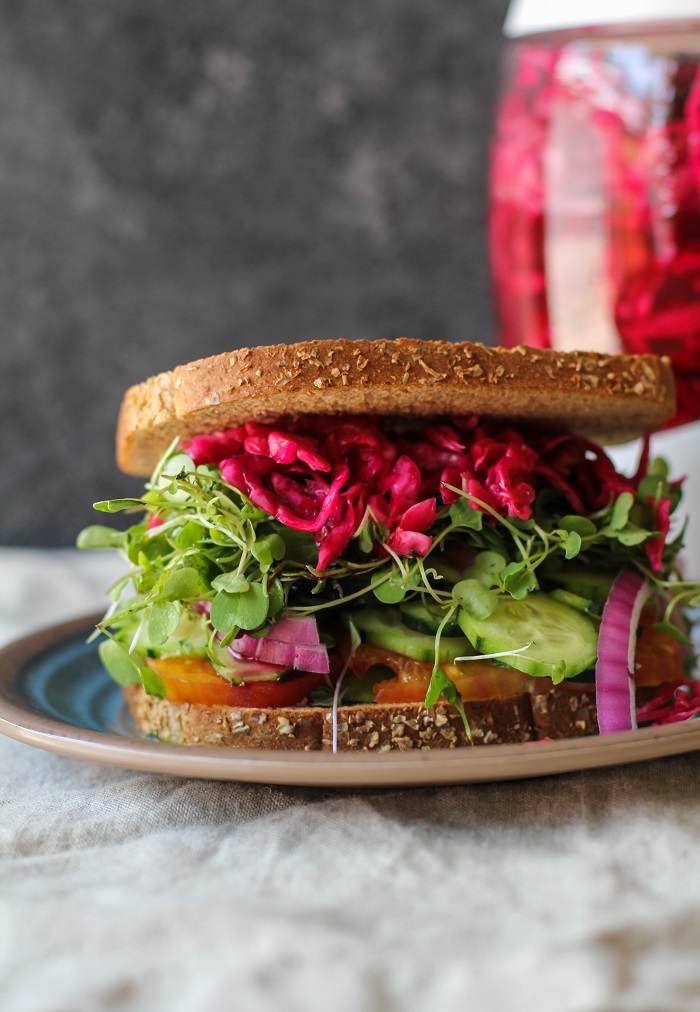
For those of you who have made sauerkraut at home, you know there are a couple of ways to go about it. Method 1.) You can use a fermentation crock (easiest option) Method 2.) You can use a large wide-mouth jar with another smaller jar to weigh down the cabbage. Both methods work, but Method 1 is more reliable and you can make bigger batches. Plus, finding the right setup for Method 2 can be more time consuming than its worth, and can cost almost the same amount as investing in a fermentation crock. For my first go at sauerkraut many moons ago, I tried Method 2, and it didn’t work (like, my cabbage never fermented, it just got moldy), but that doesn’t mean it’s not possible. Just food for thought.
For those of you who are into fermenting, pickling, brewing, and being an overall badass hippy who has cupboards filled with jars of home-canned science experiments, I have a tool for you to check out.
Product Review
Montreal-based Mortier Pilon got in touch with me a few months back to ask if I wanted to try out their fermentation crock. As it turned out, I was in the market for a fermentation crock at the exact time they reached out, and when I checked out their website, I was instantly drawn to the clean, simple design of their product. As you can see, my response was a big yes, and I was eager to get my fermentation going.
The design of Mortier Pilon’s fermentation crock is super straight-forward. Here are the features:
- Large glass carafe (jug), available in a 5 liter and 2 liter option – I used the 2 liter for making the sauerkraut in this post.
- Ceramic weight (for weighing down vegetables like cabbage to get them to ferment properly.
- Removable lid (the lid has a smaller cut-out so you can leave it open for air or for adding liquid/salt). The lid also has a chalkboard rim so you can write the date that you began fermenting its contents.
In addition, the company provides a few recipes on its website to get you started, and its own cookbook for giving you a huge array of resources for making the best use out of the crock.
^Tomato butt win right there.
I admit, since writing my cookbook, Delicious Probiotic Drinks, I haven’t been brewing kombucha or fermenting veggies much over the past couple of years. Since trying out the crock, I’m psyched to jump back in, as so many different foods and drinks can be crafted with it. For those of who who own my cookbook, this crock is perfect for brewing every single drink in that book. All of the beverages require a large glass jug with a wide mouth.
Other recipes you can make using Mortier Pilon’s fermentation crock:
- Probiotic beverages, such as homebrewed kombucha, ginger beer, water kefir, beet kvass, etc.
- Sauces such as mustard and ketchup
- Condiments such as pickles, kimchi, sauerkraut, relish, chutney, latofermented salsa, etc.
- Pickled vegetables and fruit, such as beets, girkins, green beans, onions, carrots, peaches, orange rind, etc.
Why fermentation?
Fermented food is easier to digest than non-fermented food, and it introduces a microcosm of healthful flora and fauna into your digestive system, providing overall digestive health, regularity, and happiness. Your vagus nerve, which runs from your abdomen to your brain, sends your brain status updates on the state of your digestive system. If your belly is happy, your being is happy. If your stomach is upset (whether or not you actually feel the upset), you’re more likely to be cranky, moody, and/or tired. Essentially, probiotic-rich fermented foods help create balance in your digestive system, allowing the food you consume to be broken down efficiently and the nutrients it contains absorbed properly. When your body’s fuel tank is working as it’s supposed to with the help of good bacteria and yeast, your energy level is high, your mood is elevated, and your mind and body are healthy.
The process of fermentation releases vitamins, minerals, probiotics and yeast within the food, making them more nutritious to eat. All raw foods contain probiotics and yeast, and allowing them to sprout or ferment gives the good bacteria and yeast a chance to grow and reproduce. During the fermentation process, the probiotics and yeast feed on the natural sugars of the grain, vegetable, or fruit, thereby transforming the food itself and the liquid surrounding it into a probiotic mecca of gut-healthy bacteria.
In addition to the gut-healthy probiotics contained in fermented food, the fiber and nutrients are also easier to digest. This is why some people who have a difficult time digesting grains will eat sprouted rice, but not un-sprouted rice. The sprouting (germination/fermentation) process breaks down the difficult-to-digest proteins within the grain, thereby allowing your body to absorb the nutrients that had been previously locked away.
I know what you’re wondering…wine and beer are fermented…why aren’t they probiotic-rich? A natural bi-product of fermentation is a small amount of alcohol, which is an okay environment for probiotics up until a certain point. Once a certain alcohol level is reached, probiotics die. This even happens when you brew kombucha at home and you let it go for too long – it essentially turns vinegary and can only be used for cleaning, and is not suitable for drinking because the pH can damage your digestive system. Since beer, wine, and liquor are designed to have a higher alcohol content than say a batch of pickles, they are fermented for a much longer period of time; therefore, the probiotics don’t survive the fermentation process.
Now on to sauerkraut. It’s super easy to make!
How to Make Sauerkraut
1.) Start by thinly slicing a whole head of cabbage, and place it in a large mixing bowl along with coarse sea salt. Use your hands to massage the salt into the cabbage and squeeze it in batches for a few minutes. This process will release the water within the cabbage, which ends up being the liquid in which the cabbage ferments.
2.) Transfer the salty squeezed cabbage to the fermentation crock and place the ceramic weight on top of it.
3.) Let the crock sit, preferably in a warm, dark place like a closet or pantry. After 24 hours, check the status of the cabbage. If it isn’t fully submerged in its own liquid, dissolve a couple tablespoons of sea salt in spring or well water and add it to the crock so that the cabbage is fully covered in water.
4.) Now comes the easy part. Simply let the crock hang out for a full week, checking on it periodically to be sure it isn’t moldy. After a few days, it will begin to smell vinegary and after a week, you’ll have sauerkraut!
5.) Transfer the sauerkraut (along with the liquid) to a sanitized sealable jar and refrigerate. When sealed properly, sauerkraut should last in your refrigerator for months on end.
The first thing I did when my sauerkraut was finished fermenting was make a veggie-packed sandwich for lunch. I used avocado, heirloom tomato, cucumber, red onion, arugula micro greens, and of course, the kraut. I have my mind set on all the reubens and wraps as well.
Check out Mortier Pilon’s Fermentation Crocks on Amazon!

Homemade Sauerkraut
Ingredients
- 1 large head red cabbage thinly sliced*
- 6 tablespoons coarse sea salt
Instructions
- Place the thinly sliced cabbage in a large mixing bowl along with coarse sea salt. Use your hands to massage the salt into the cabbage and squeeze it in batches for a few minutes. This process will release the water within the cabbage, which ends up being the liquid in which the cabbage ferments.
- Transfer the salty squeezed cabbage to the fermentation crock (make sure all of the salt gets in there, too!) and place the ceramic weight on top of it.
- Let the crock sit, preferably in a warm, dark place like a closet or pantry. After 24 hours, check the status of the cabbage. If it isn’t fully submerged in its own liquid, dissolve a couple tablespoons of sea salt in spring or well water and add it to the crock so that the cabbage is fully covered in water.
- Allow the crock to sit for a full week, checking on it periodically to be sure it isn’t moldy. After a few days, it will begin to smell vinegary and after a week, you’ll have sauerkraut!
- Transfer the sauerkraut (along with the liquid) to a sanitized seal-able jar and refrigerate. When sealed properly, sauerkraut should last in your refrigerator for months on end.
Notes
Nutrition
More fermented recipes on The Roasted Root:
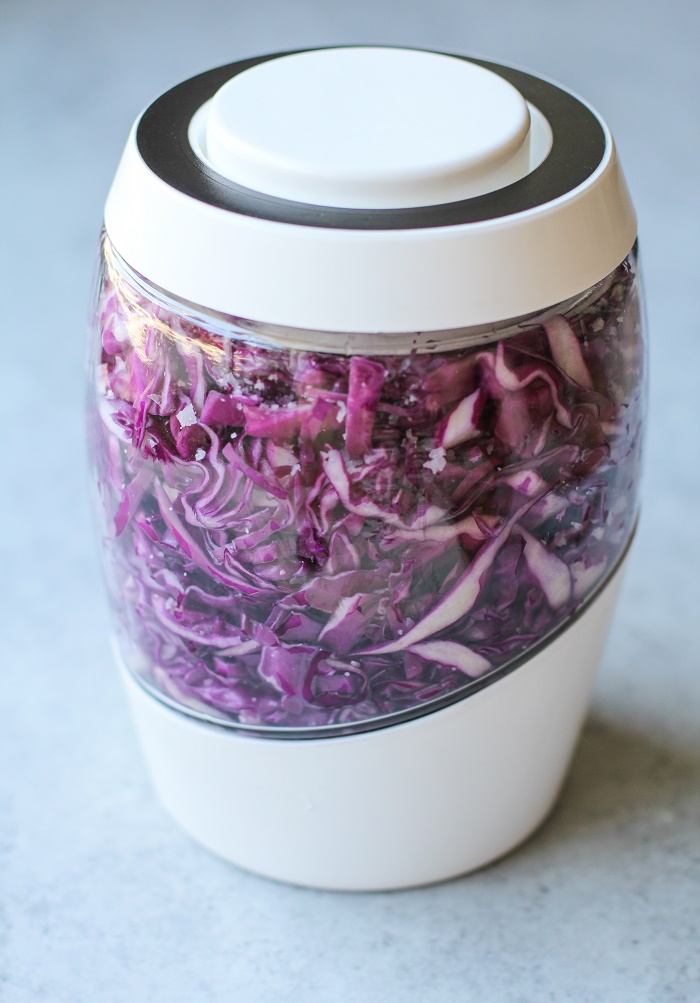
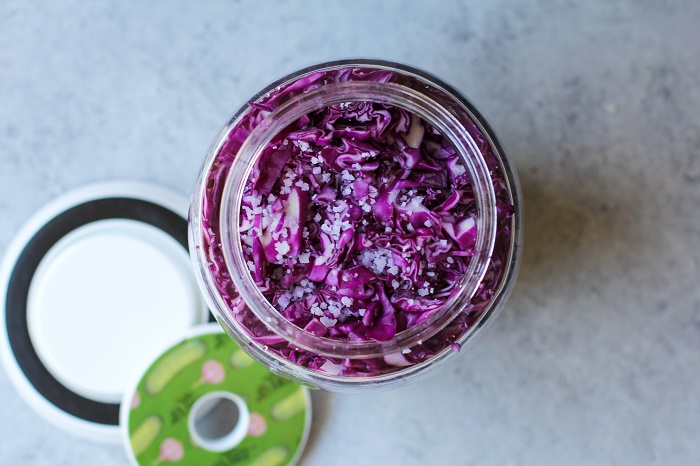
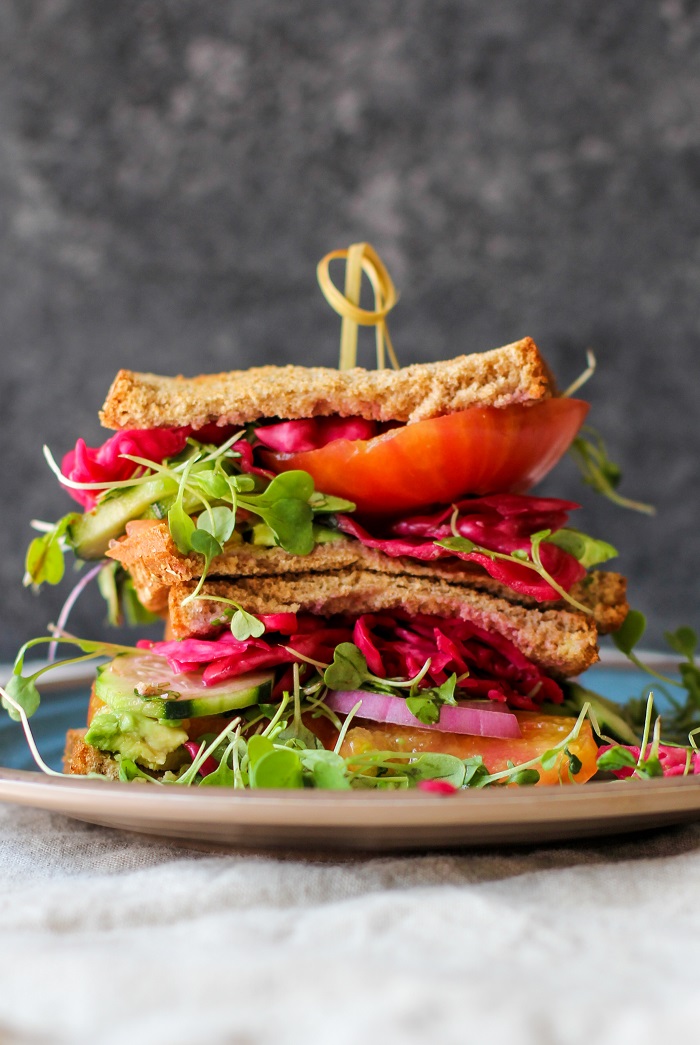
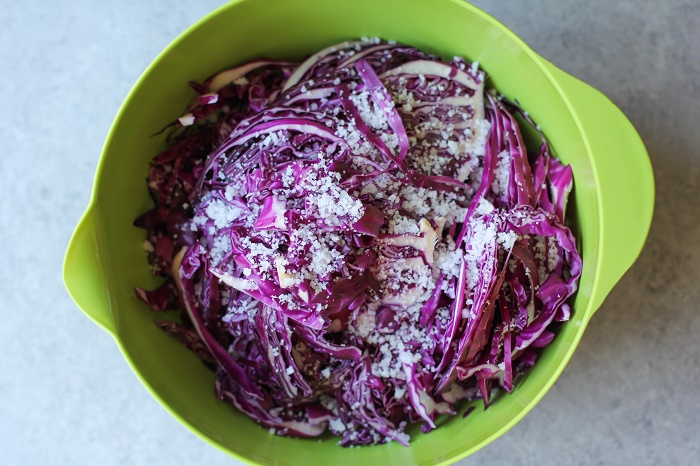
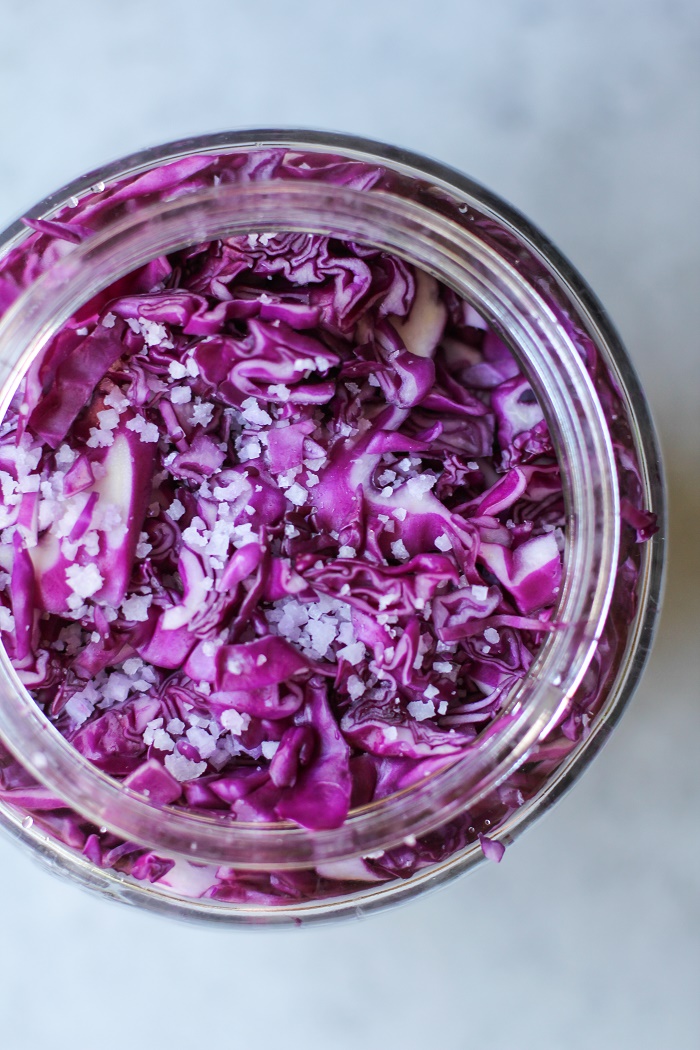
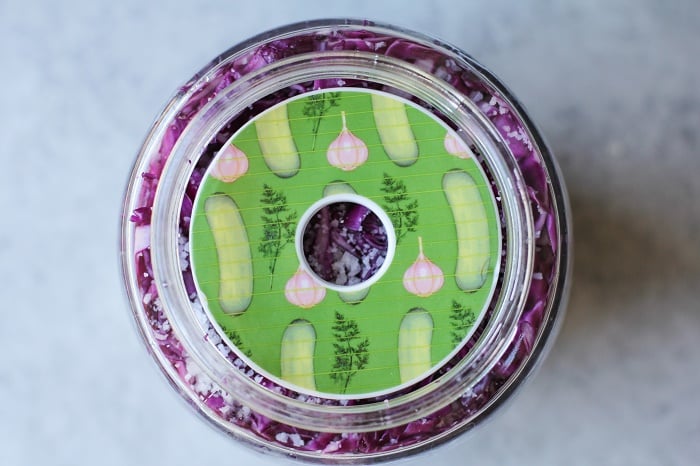
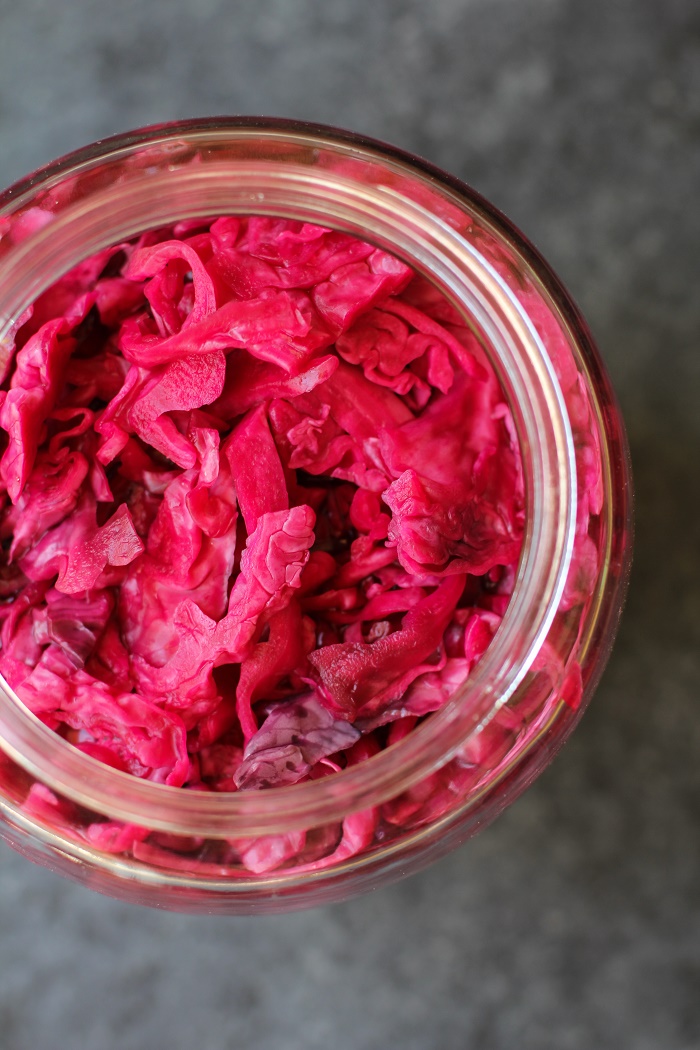
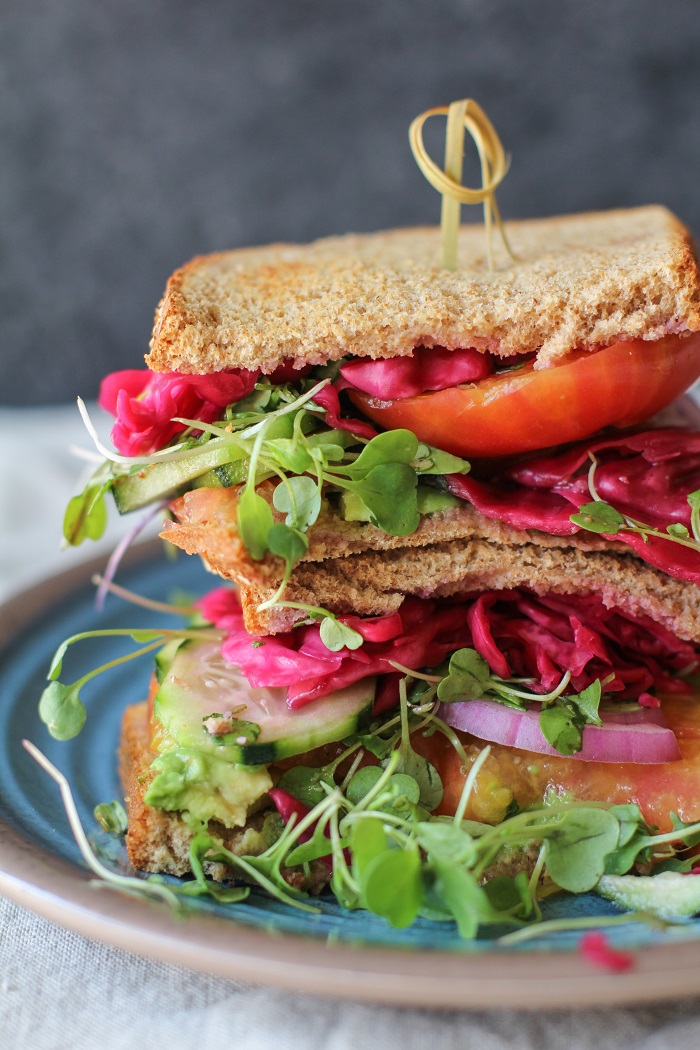

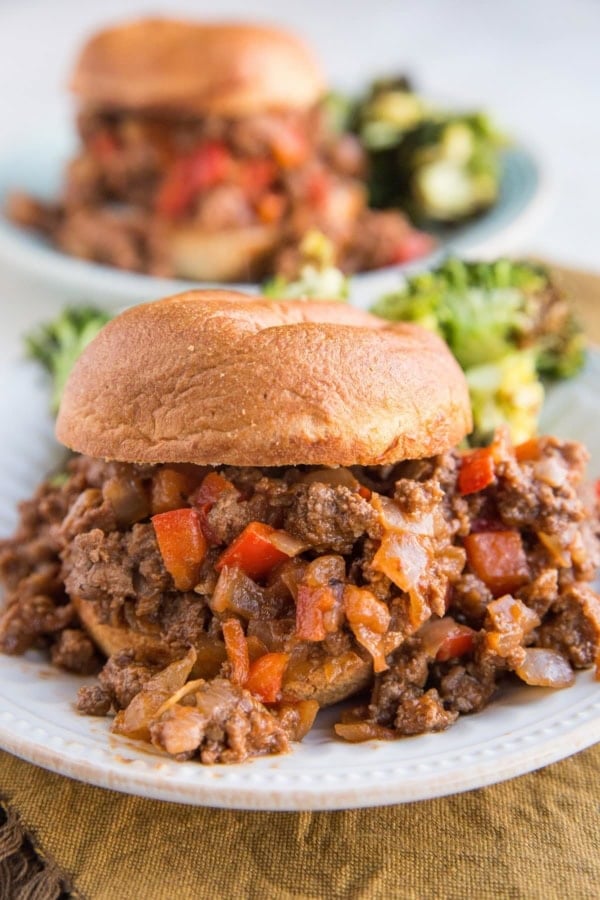

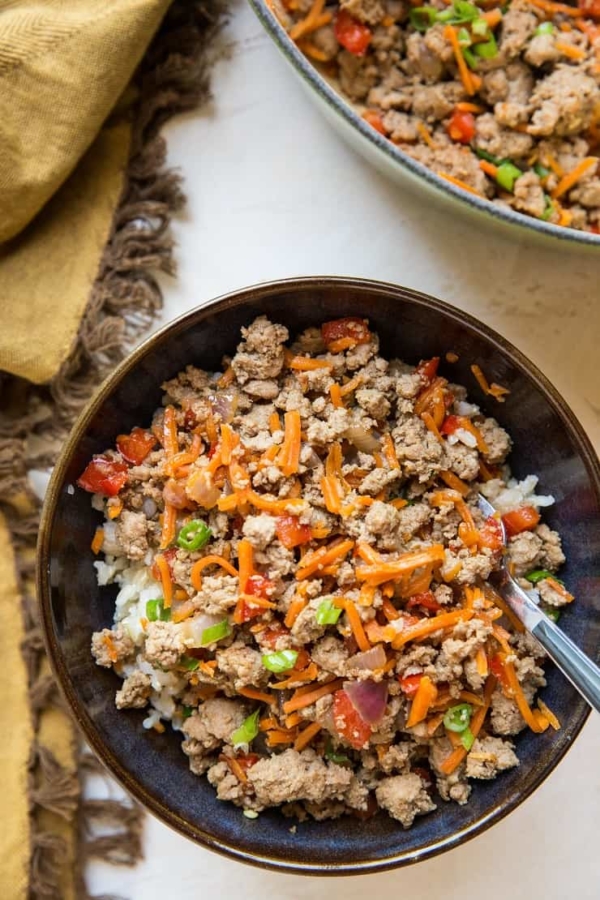










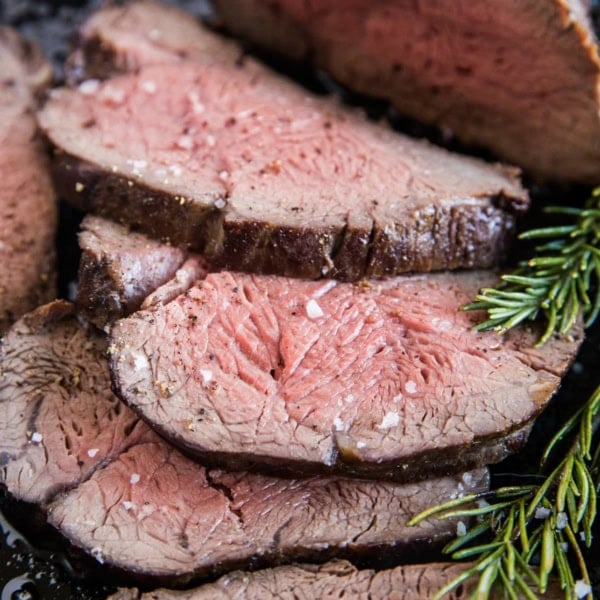


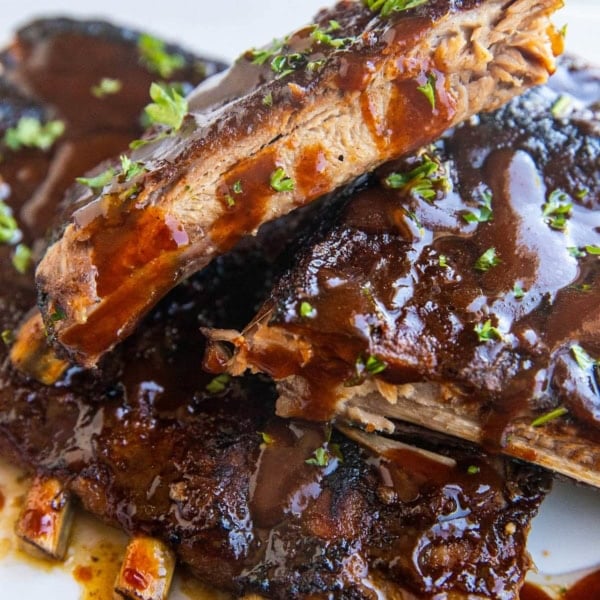


This is a beautifully explained recipe. I love the color of the red cabbage – although I’ve never used it before. Does it have a different taste than the green cabbage people make use of so often? Regardless, I am super excited to try this recipe – and the tool you mentioned looks great! I have always used mason jars, but a crock seems great for large productions of sauerkraut! Thank you for your post and your great pictures!
I have mine on the way home! I can’t wait to make my own sauerkraut 🙂
One question: is the smell bad during the fermentation process? I live in a flat, so no option to leave this in a pantry…
Thanks!
Ooooo I love this post! We have really gotten into sauerkraut over the last year or so … but the good stuff can be pretty darn expensive!! I soo need to try making it myself!
Yaaaas! Homemade sauerkraut is right up your alley! Let me know if you give it a whirl! 😀
Come make this for Jerry, ok? Love, squeezes and kitty cat sneezes.
You got it! This is on the To Do list for when I spend a month slash six there 😉
I love sauerkraut! AND NOW… I totally want some pickles! LOL!
Yaaaaas sauerkraut and pickles are life! Sounds like you’d be the perfect candidate to make fermented pickles at home! 😀
Yes! I just got mine sent to me from Mortier Pilon and have my krout going on the counter right now! (I’m excited!)
Yeeeees! I’m so happy to hear it, Rebecca! I’ve been debating which type of recipe to make in the crock next. I’m thinking fermented relish!
I’m a yooge fan of sauerkraut but I’ve never attempted making my own. But you make it look easy, now I’m inspired to try it! I’ll definitely be sticking with Method 1 when I do. Sounds a lot easier to me!
Yaaas! I think you’ll love making homemade sauerkraut. It’s pretty dern quick and easy and makes you feel like you’re winning all the hippy rewards. Let me know if you give it a whirl!